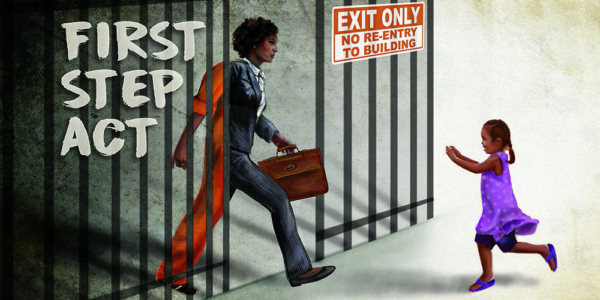WASHINGTON, D.C. – The U.S. House of Representatives approved the FIRST STEP Act (S. 756) today, one day after the U.S. Senate passed the legislation on a broad bipartisan vote.
The FIRST STEP Act, an acronym that stands for Formerly Incarcerated Reenter Society Transformed Safely Transitioning Every Person Act, includes provisions that will, among things:
- ban solitary confinement for juveniles in federal prisons;
- increase recidivism reduction programs;
- reduce and restrict enhanced sentencing for prior drug felonies;
- prohibit, subject to specified conditions, the use of restraints on women in federal facilities who are pregnant or in postpartum recovery;
- require federal prisons to make tampons and sanitary napkins available free of charge;
- require that incarcerated individuals be placed in a facility within 500 miles of their residence, helping maintain family connections;
- require prerelease planning procedures to help people leaving prison to obtain identification, including a Social Security card, driver’s license or other official photo identification, and a birth certificate.
After the passage of the bill, Kareem Crayton, Interim Executive Director of the Southern Coalition for Social Justice, issued the following statement:
“The FIRST STEP Act is appropriately named and should be seen as just that – a first step. There is more that can be done to shape our criminal justice system to make it more equitable and free from discrimination. This act deserves to become law and we urge Congress to continue to make changes to our criminal justice system that recognize the value of all of our country’s citizens. We applaud the bi-partisan leadership by the bill’s sponsors, who have shepherded this key legislation in Congress.
Ricky Watson, co-director of the Youth Justice Project at the Southern Coalition for Social Justice, issued the following statement:
“The FIRST STEP Act should serve as a framework for a better way to treat children across the country in every state prison and local jail, not just children in federal custody. It is painfully clear that solitary confinement causes trauma that only makes it harder for children to reintegrate back into society once they are released. Ultimately, we still need more compassion, thoughtfulness, and community-based alternatives for incarcerated children. Hopefully, this can be achieved with this act and even more meaningful legislation in the near future.
Angaza Laughinghouse, criminal justice staff attorney at the Southern Coalition for Social Justice, issued the following statement:
“There are over 47,000 people throughout the South incarcerated in public and private facilities. These are real people with families who deserve to be treated with respect and dignity. It is imperative that we continue to find ways to reduce the disproportionate rates of incarceration for people of color in this country. We are optimistic that this act will be a building block to more significant criminal justice reforms in the future.”
###

